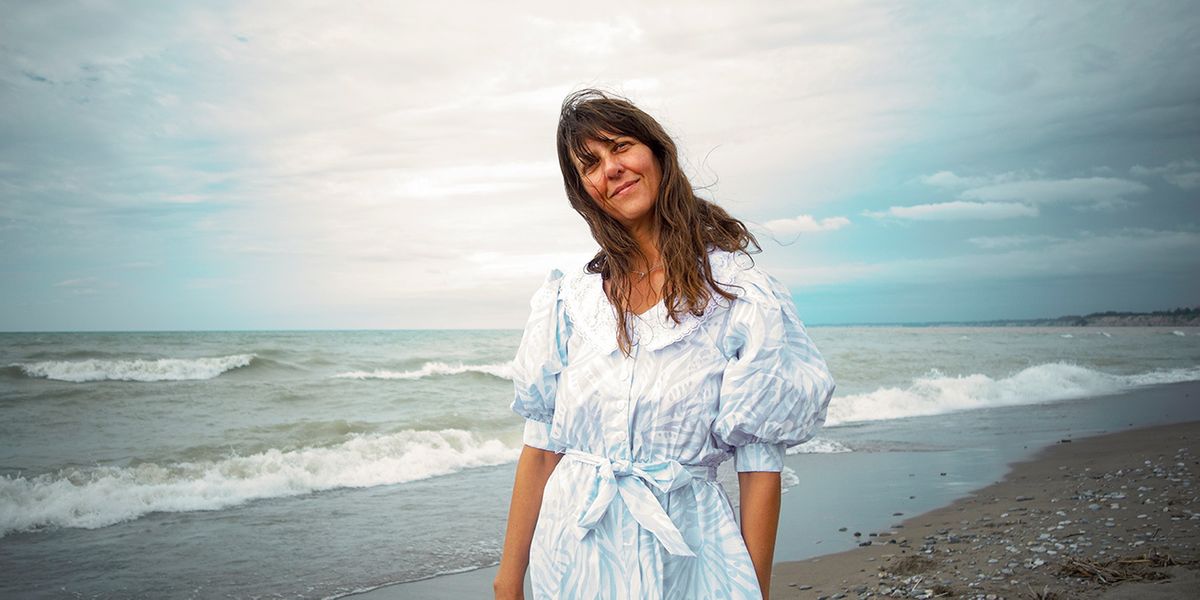The most distinctive aspect of Canadian singer-songwriter Jennifer Castle’s latest release, Monarch Season, is its stillness. Castle sings and plays guitar and piano quietly on this solo release. Even when Castle blows on the harmonica, there is a calmness to the sound. That compels the listener to pay attention and even hold one’s breath lest one’s own noises get in the way of hearing the hushed compositions.
Castle recorded the album back in Fall 2019 alone in her kitchen with her window open in Ontario on the banks of Lake Erie. She was engulfed in the tranquility of the place. This was before the recent COVID pandemic forced us all to be isolated. There is a lightness to Castle’s songwriting and performance. She’s not lonesome or abandoned; she’s merely solitary in her thoughts and feelings.
The nine tracks are relatively short. The longest weighs in at over four minutes and the shortest at less than two. The songs seem part of a single entity, each piece tied to the others through their shared, peaceful quality. Castle and her co-producer Jeff McMurrich keep recording for several seconds after a song is over, capturing the serenity of silence in addition to ambient sounds like the lapping of waves in the nearby lake.
The album opens with the sole instrumental track, “Theory Rest”, to set the mood. It’s unclear what the name refers to. Castle picks out the notes folk style on her acoustic guitar in a manner that suggests the presence of nature, the babbling of a brook, the wind wafting through the leave, without being explicitly referential.
Castle trills the other songs in a hushed voice. The lyrics can be challenging to understand as she stretches out certain syllables and sometimes seems to be crooning to herself. The atmosphere matters more than the particulars in a charming way. Castle uses the moon as her prevailing metaphor for what is lovely and real, yet mysterious as well. Consider the soft and beautiful “Moonbeam or Ray”. She asks her lover, “did you break me to pieces?” and cites the way a disruption to a lake’s surface can break up the moon’s image in the water as a response. Making the query proved experientially sufficient.
“When the moon is crescent, I swing,” Castle sings playfully on “I’ll Never Walk Alone”. Her mood changes with the various lunar phases. No one is ever really by oneself when living in the world as we are all part of the whole. The title track uses butterflies as a symbol for living free, but even they are attracted to the moon as a way of guiding their journey. The music suggests the delicate movements of wings in flight.
Castle’s not always hanging out in the country. Her reminiscence of life in “NYC” captures the spirit of city life (and her past self) reflected on in tranquility. The other tracks offer impressions of people, places, and things filtered through her current sensibility. Castle is the center of it all. She ends the record with about two minutes of silence except for the gentle sounds of the natural world outside her window. Castle understands that quiet can speak volumes.


